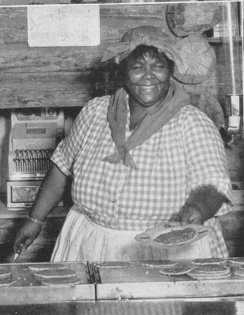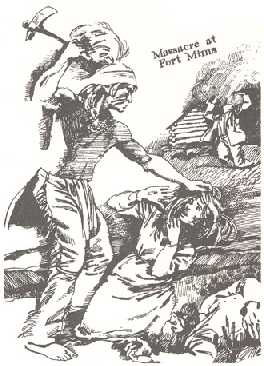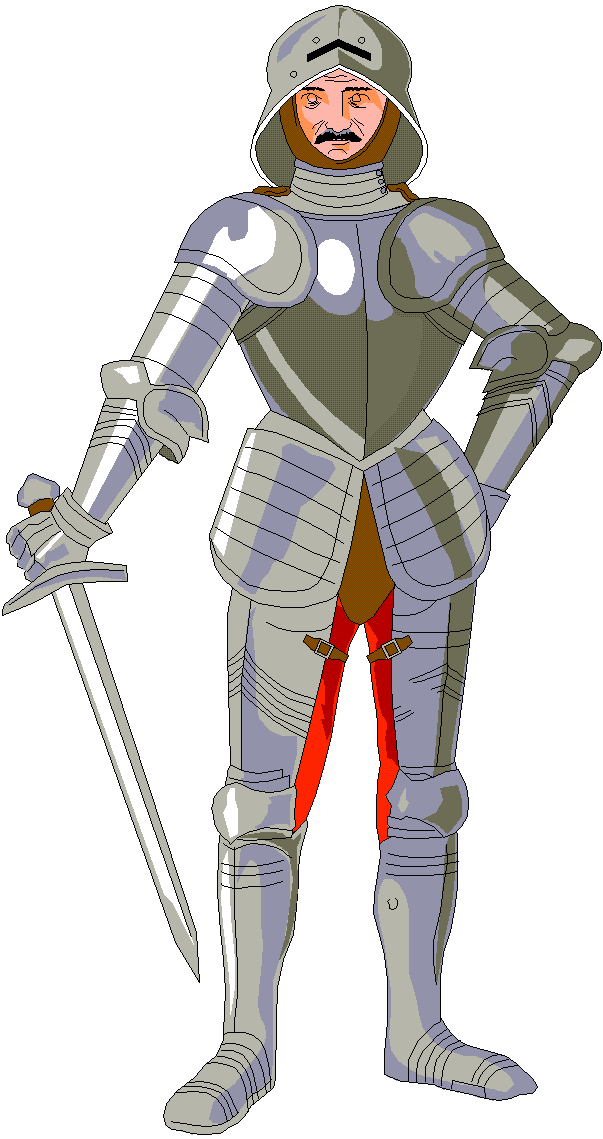
 An essay sent to me by a correspondent:
An essay sent to me by a correspondent:

 An essay sent to me by a correspondent:
An essay sent to me by a correspondent:
White Myth and White "Truth"
While some may consider the transcendental murmur of "life" in the ethos inspired or dismissed by universal themes of justice, vengeance, the cruelty or nature etc. etc., while pondering the imponderables of who did what to who and who allowed whom to do what to do and yada yada blah blah, some things are more immediate and relevant.
For example:
It is wrong to give people blankets infected with smallpox. If Indians give them, it is wrong. If whites give them, it is wrong. If blacks give them, it is wrong. It is a bad thing. A bad bad thing. We can not judge from high aloft in clouds looking from eternity to eternity to determine "who started it." We must make the judgments in our own brief span of time. We may make mistakes, we may judge the wrong person by mistake. But we may not stand idly by, loafing indecisively. People who do that encourage evil.
No one in the history of the world ever determined that people of certain color were inferior until the white people did it first beginning Virginia in 1670, to mixed, black and red people. This is when the idea of "white" began. Prior to this folks had religious, political, land wars. But never a color war. Never a genetic war. This sense of a "white" identity superior to all other colors, whether those colors were Christians, Moslems, Buddhist or "other" began in America. Sure there was slavery prior to America. Christian Spain state policy enslaved white Moslems, black Moslems and purple Moslems, white animists, black animists and purple animists, but not other Christian blacks. Moslem Africa state policy enslaved Christian blacks, Hindu, animist blacks but not other Moslems. No other country EVER enslaved someone simply on skin color. New York, Maine, Tennessee, North and South, East and West, they decided Christianity, Moslem, Buddha did not make men brothers. They decided that black and red could never be equal to white no matter what god they worship.
This is the difference between slavery in Africa and slavery in America 1619-1865. A Moslem in Sudan will enslave a Christian today, but a Moslem will not enslave another Moslem be he black brown or white. Religious affiliation is a matter of choice, skin color is not. If you were not white in America, you were doomed unless you fought very very hard like our ancestors fought. To the U.S. government, a Christian Negro was the same as a pagan Negro after 1670. Christian Indian was no more than a pagan Indian. Skin color overruled God according to the US government. Only our people with God's help succeeded in denying them what they wanted. Our ancestors were giants. Our mixed ancestors were warriors who lived in the camp of the enemy and taunted them. The Lumbee chased the Klan out every time they showed up.
The Redbones in Westport Louisiana blasted their white butts to kingdom come. No Trail of Tears today thank you, just a load of buckshot for the white posse. There are no people on earth like our ancestors. Our ancestors were mixed red, black and poor white and mixed is better. The wild tobacco plant must be cross-bred to be sweet and strong.
In the late 19th century along came Charles Darwin and evolution's "survival of the fittest." Read: "survival of the whitest." British and American eugenics scientists determined that the non-whites were inferior. (chuckle) They sterilized hundreds of Vermont's Abenaki Indians. In Virginia, more "mixed bloods" (of mixed black white and red blood) were institutionalized for insanity than all other ethnics, German, English, Scot, Irish, Swiss, Austrian, French, Norwegian, Spanish, etc. etc. COMBINED.
With the great stock market crash in the early 20th century, and the Great Depression to follow and the spread of communism in Russia, America's industrial leaders, Rockefeller, Ford, Edison, etc. decided that America had to stop accepting non-white immigration from Europe, Asia, Africa and the rest of the world. They determined that "coloreds" and poor whites at the bottom of the American social structure presented an easy breeding ground for social insurrection. Their hired goons massacred workers in the coal mines of West Virginia etc. when poor whites, mixed and blacks struck for higher wages.
In 1926 the huddled masses of the world were locked out of America. In 1924 Virginia, (which was) founded 13 years before Plymouth, with a stroke of the pen wiped out its Indians, calling them "Negroes" and forbade intermarriage, forbade going to white schools. This feat was engineered by state pencil-pushers like the white supremacist WA Plecker, Virginia's state registrar. America's industrialists organized the Third International Congress of Eugenics in 1932. Prominent German Nazis and Italian socialists attended and these white American pencil pushers taught them how to isolate, corral, institutionalize, label, number, count, and sterilize non-whites and mixed bloods. Guess what happened next? World War II and the genetic Holocaust. Millions dead. Thanks whitey.
There was no "white" ethnicity before 1670 Virginia, North Carolina, South Carolina, Delaware, Maryland. The seeds of Holocaust were first planted in Virginia when the white man said that the mixed black, white and red would NEVER be good enough.

Is it over? Nope. Margaret Sanger was one of those early eugenicists listening to the racists and the fascists. Remember her? She started Planned Parenthood with the backing of American industrialists Harriman, Rockefeller, etc. Read what her magazine said about blacks, Indians and mixed. The originator of Planned Parenthood was a blatant bigot. Who do these white people target for abortion, condoms, sterilization? Africa, India, China, poor Appalachians, blacks, Indians. Where are plagues and starvation allowed to rage? Africa. South America. Appalachia. They have convinced themselves that wiping us out is good for us. They must "control" our non-white populations.
This is a democracy. Have many many children. Out number the whites and any other who judge by skin color. Do not be overwise. Do not oversmoke. Propagate. Then Vote. The family with the most members rule in a democracy.
I support a woman's right to choose, but do not be stupid, check the skin color of the one whispering in your mixed ear and ask why disproportionate efforts to "control population" are made in non-white communities.
Beware a conservative or liberal sympathetic white face who "knows" what is good for you.
That is no smoke.
Origins of racism discussed
To the author,
I appreciated your excellent message on racism, which someone sent to me. Is it on the Web anywhere, or can I post it on my site?
One slight quibble: Didn't Columbus and the other Spanish invaders distinguish themselves from the Indians racially? True, they may not have literally said, "We're white and you're not." But calling an entire race "savage" or "inhuman" is a racist classification any way you look at it.
You mentioned how Europeans were prejudiced against belief systems but not against race. The story of Cabeza de Vaca and Esteban the Moor may provide a counterexample. As you may know, they wandered across the Southwest and adopted Native ways, c. 1536-7. When they finally met Spaniards from Mexico again, the Spaniards treated them like Indians...until they realized who they were. Then Cabeza de Vaca went back to being a Spanish official and Esteban went back to being a slave.
Even though Cabeza de Vaca and Esteban had "gone native"—becoming holy healers to the Indians—the prejudice against them lasted only as long as the Spaniards didn't recognize them. Once the Spaniards perceived their true race, they treated them like a typical white man and black man, respectively. Cabeza de Vaca got his status back, though he acted like an Indian sympathizer. Esteban got his chains back, though he'd proved himself Cabeza de Vaca's equal.
That says to me the Spanish of 1536-7 were racially conscious, whether they put it into words or not. They were prejudiced not only against cultural differences, but against physical differences as well. No doubt neither prejudice was absolute, but I think they both existed, well before 1670.
Returning to the slave-owning Columbus, I don't doubt an Indian improved his status when he converted to Christianity. But did a Christian Indian become equal to an Christian white man? I doubt it. Europeans may not have expressed prejudice against other non-white Christians, but from 1492 to the middle of the 20th century, I don't think many white Christians called Indian Christians their true equals.
In other words, Europeans and Americans remained prejudiced against the Indian race, regardless of the religion the Indians chose. So I'd be curious to hear about how you came up with 1670 as the starting date for white racism. I'd push it back to 1492, at least.
But I do agree with your basic sentiment. Something about Euro-American culture made it uniquely domineering, destructive, and racist. I've written about this subject several times myself. You may enjoy my postings at Native vs. Non-Native Americans: A Summary.
Hoping to discuss this with you further,
Rob Schmidt
Publisher
PEACE PARTY

Author's reply
Hello Rob,
Yes you may post the things you speak of. But please note along with it that it may not be reused without my permission.
I think you are stretching the available information regarding prior state racism. These people under discrimination by those Europeans you cite were first "pagan." Europeans assumed the religion from the color of the skin. The counter to your argument is the status of free Christian mulattos, blacks, Indians among the Spaniards, Portuguese etc. Some of these even attained high office as Christians. The Spanish also enslaved white Christian Europeans at the time. Also clouding the situation are the lingering suspicions Europeans had towards newly baptised non-whites. You likely know that such recent converts usually held dual customs for more than a few generations. In places like Peru, and even Europe today, pre-Christian practices continue in Christian worship and faith, and are viewed with disdain by the more "intellectual." This is not racism but a religious or cultural bias.
Columbus and other Mediterranean Europeans were acutely aware of the advanced Moorish culture evident everywhere in Spain, that part of the world having recently been controlled by northern Africans. We have a tendency to impose a kind of stilted, mono-dimensional stupidity on people of the past. The Spaniards were more aware of the advanced capacities of the Africans and pyramid building Indians (Aztecs, Mayans, Incans etc.) than certainly were the English.
The two distinguishing social markers from Norway to Spain up to the 17th century were: 1.Class 2. Religion
Example, in the early 17th century, Pocahontas married John Rolfe after her baptism. They sailed to England and were invited to the royal court. The king and his retinue expressed their horror that "Princess" Pocahontas, daughter of Powhatan, had married a commoner, John Rolfe. Once she had been baptised she, Indians, were viewed as equals, and Pocahontas as superior to, white English people of lower class. King James saw Pocahontas as his sister and Rolfe as his servant. Even the Spanish always handled the royal "pagans" differently. Religion and Class were the two most important social markers prior to 1670. There are absolutely NO reports of state sanctioned racism anywhere in the world prior to 1670. The Spanish Crown never ruled specially against skin color before this, nor did any other nation. The Church always argued for the equal status of baptised believers from Spain to England to the Islamic mosques. Neither did pre-Christian states claim such a distinction. The racist conduct of personal individuals does not constitute state oppression. Show me the archives where the Spanish or Portuguese law denied rights to Christian non-white citizens of equal class. It did not occur prior to 1670 Virginia, Maryland, Delaware and the Carolinas, and the first targeted were the ancestors of the Melungeons, the black Western Africans along with the Eastern Indians..
Did rogues, acting as court reps far from world capitals ever abuse folks for skin color alone before this? Hard to determine because another factor is greed. General Vasconcelos, Portuguese in 1618, certainly took Christians captives among the 50,000 Angolans he seized from 1618-1621. However his motivation was not racism but the desire to get rich away from the eye of the Crown. Even so, a hue and cry was raised by missionaries, settlers, and officials condemning his actions and he was recalled. The state never sanctioned Vasconcelos, he was a truce breaker and loudly condemned by the Church.
The first government to legislate racism was the American colonial (British) government from 1670-1720. I can show you the law. If you can find a like law outside of America, please inform me. It is not present.
To explain why I say 1670 Virginia, I have attached a copy of my upcoming series "Malungu" which will begin in the Appalachian Quarterly mag this September.
The author refers to the following: "In 1670 the Virginia Assembly forbade free African-Americans and Indians from owning white servants. (Hening, Statutes at Large, II:280)"

Rob's reply
I hope we're not confusing two things: racism and state-sanctioned racism. You originally said "There was no 'white' ethnicity before 1670." Now you're saying, "There are absolutely NO reports of state sanctioned racism anywhere in the world prior to 1670." I trust I don't need to explain why the second claim is much narrower than the first one.
You mentioned "free Christian mulattos, blacks, Indians among the Spaniards, Portuguese etc.," some of whom rose to high office, and "white Christian slaves." Without some numbers, these facts don't tell us much about whether European cultures were racist. What percent of the baptized Indians in the Americas were slaves, indentured servants, and free men and women? Of the last group, how many enjoyed equal rights with their white Christian peers (most of whom were presumably peasants)?
And how many rose to high office? If the Indians outnumbered the Spaniards, say, 10 to 1 in Mexico, I'd expect them to occupy high offices by the same 10-to-1 ratio. If the nascent Mexican culture was racially unbiased, that is.
And what was the comparable situation among white Christians in Europe? I'm under the impression that slavery was relatively rare in Europe during the 1500s. If the Spanish enslaved, say, 10% of the baptized Indians in the Americas but only 1% of the baptized whites in Europe, they were making a distinction based on race. The Indians' inferior race made enslaving them more acceptable.
In The Heritage of the Spanish Scholastics, Leonard Liggio noted a 1511 sermon by the Dominican friar, Antonio de Montesinos. Liggio continued:
According to Hanke, "Montesinos delivered the first important protest against the treatment being accorded the Indians by his Spanish countrymen, enquiring: ‘Are these Indians not men? Do they not have rational souls? Are you not obliged to love them as you love yourselves?' " This sermon in America led immediately to a dispute at Burgos in Spain from which were issued the first two Spanish treatises on Indian problems and the first code drawn up for the treatment of Indians by Spaniards, the Laws of Burgos.
The Laws of Burgos were proclaimed in 1512 but not rigorously followed.
I believe these codes constitute an earlier example of state-sanctioned racism, or at least of state-sanctioned awareness of race. I don't think the codes were based on cultural or religious distinctions, either. Europeans were asking themselves whether Indians were men or beasts. There were no such questions about the Jews, Arabs, or Chinese—or about white Anglo-Saxons before they converted to Christianity.
Certainly the Spanish Requirement of 1513 was a state-sanctioned policy developed for and directed toward the indigenous Americans. Unless the Spaniards read the same proclamation when they encountered African or Asian peasants, the policy wasn't based on class, religion, or nationality. It was based on race: the "inferior" race of the Indians.
The debate between Sepulvèda and Las Casas was a state-sanctioned effort to judge a racial matter: whether Indians had souls. Again, this wasn't directed at all barbarians or all non-Christians, so it wasn't an issue of class or religion. It was a specific political, moral, and theological debate about the race known as Indians.
Racism since 1492
Gary Nash has written a superb essay—Red, White, and Black: The Origins of Racism in Colonial America—on this subject. The following excerpt makes it clear the white interlopers were aware of the racial differences between them and the Natives—well before 1670:
Englishmen did not arrive at Jamestown, Virginia, in 1607, or at Plymouth, Massachusetts, in 1620, with minds barren of images and preconceptions of the native occupiers of the land. A mass of reports and stories concerning the Indians of the New World, many of them based upon the Spanish and Portuguese experience in Mexico, Peru, and Brazil, were available in printed form or by word of mouth for curious Englishmen crossing the Atlantic. From this literature ideas and fantasies concerning the Indians gradually entered the English consciousness.
These early accounts seem to have created a split image of the Indian in the English mind. On the one hand, the native was imagined to be a savage, hostile, beast-like creature who inhabited the animal kingdom rather than the kingdom of men. In 1585, prospective adventurers to the New World could read one description of the natives of North America which depicted them as naked, lascivious individuals who cohabited "like beasts without any reasonableness." Another account described them as men who "spake such speech that no men could understand them, and in their demeanor like to brute beastes." But Englishmen also entertained another more positive version of the New World native. Richard Hakluyt, the great propagandist for English colonization, described the Indians in 1585 as "simple and rude in manners, and destitute of the knowledge of God or any good laws, yet of nature gentle and tractable, and most apt to receive the Christian Religion, and to subject themselves to some good government." Many other reports spoke of the native in similarly optimistic terms.
Even a positive report of racial characteristics is racist, of course. Any imagined distinction based on race is.

Like you and Nash, Professor Halford Fairchild links racism to the Americas. His claim:
The institutionalization of slavery within the Americas required an intellectual justification for the mistreatment of millions of African men, women and children. Muslims had mirrored this process of intellectually justifying enslavement in the earlier enslavement of East Africans. Slavery required racism and was the proximate cause of it.
One slight problem with this: Slavery didn't begin with the black slave trade that flourished in the 1600s and 1700s. It began with Columbus's first voyage. Columbus was the first transatlantic slave trader, though he took slaves from the New World to the Old.
As soon as Europeans heard Columbus's tales, they began envisioning a global empire. Then they began justifying it. Their rationalization was a version of Manifest Destiny: that they were bringing civilization to the world. That required identifying everyone but Europeans as savage or uncivilized. And that required convincing themselves other races were inferior.
Grace Steele Woodward's biography of Pocahontas says, "Rolfe was clearly aware of the long-standing taboo against...marrying 'strange wives.'" He took the unusual step of writing to Sir Thomas Dale for permission to marry her. "Dale was quick to agree that the marriage would be good for the colony," added Woodward.
All that suggests the Pocahontas case was exceptional because of her unique position as a "royal" bridge between colonists and Natives. If she had been a Christian commoner with no strategic value, would Dale have approved the marriage? Would the British court have deemed her the equal of an English woman, with the same rights and privileges through marriage? That seems dubious to me at best.
So...did state-sanctioned racism begin in 1670? Maybe. Did human awareness of race and ethnicity began then? Sorry, I don't think so.
Rob
More thoughts on the origin of race
I contend that American racism as we inherit it today is a social construction of reality. Prior to Columbus, the world functioned for millennia without the race construct as we understand it today.
Dr. Cornel Pewewardy (Comanche/Kiowa), Why Educators Can't Ignore Indian Mascots
There were no "Indians" before the conquest of the Americas. There were no "blacks" before Europeans began exploiting Africa. There were no "Latinos" until the 1970s, when government agencies and corporate marketers sought to create a generic identity for a diverse Latin American-origin population.
The process of lumping together a wide range of ethnicities, linguistic groups and tribes is nothing new. The Europeans did it to establish clear differences between themselves and others; today, it is being perpetuated in order to make nonwhites more intelligible to the majority and more accessible to the marketplace.
Gregory Rodriguez, "Sold Americano," LA Times, 12/9/01
Sepulveda is the "father of modern racism" who claimed that the Spanish were entitled to benefit from colonization of the Indians because of the supposed virtues of the Spanish and the sins and other deficiencies of the Indians. The first was that the Spanish offered to the Indians the benefits of Spanish "civilization," a term which those who used it assumed that those who heard it would understand to designate an entitlement. The Spanish adorned themselves with the mantle of "civilization." (Forget about the origins of the word and its connection to cities: "civilization" is now completely associated with something approaching utopia, an entitlement of Christian society.)
John Mohawk, Mohawk: A Racist Doctrine Ensures Racist Behavior, Indian Country Today, 3/24/06
Related links
Those evil European invaders
Highlights of the US report to the UN on racism
Native vs. non-Native Americans: a summary
Readers respond
"Race doesn't exist. It is a social construct."
The Biblical conflict between Israelites and Canaanites was an earlier example of genocide based on race.
|
. . . |

|
All material © copyright its original owners, except where noted.
Original text and pictures © copyright 2007 by Robert Schmidt.
Copyrighted material is posted under the Fair Use provision of the Copyright Act,
which allows copying for nonprofit educational uses including criticism and commentary.
Comments sent to the publisher become the property of Blue Corn Comics
and may be used in other postings without permission.